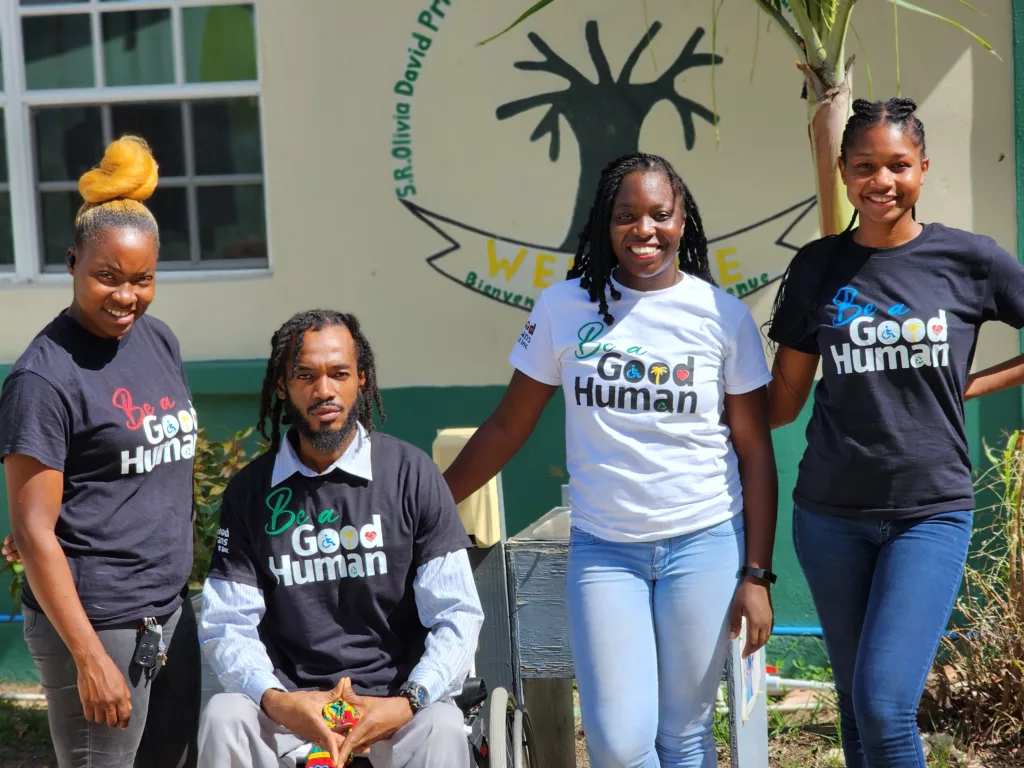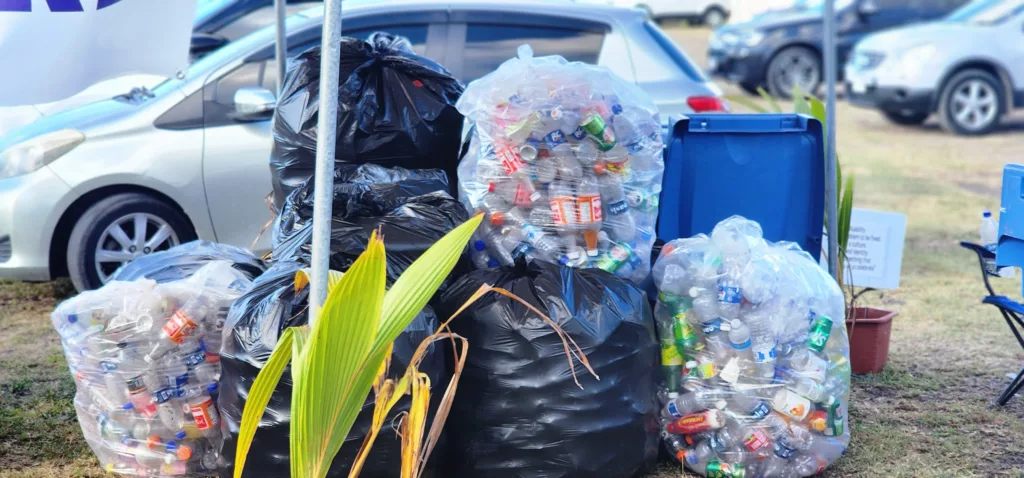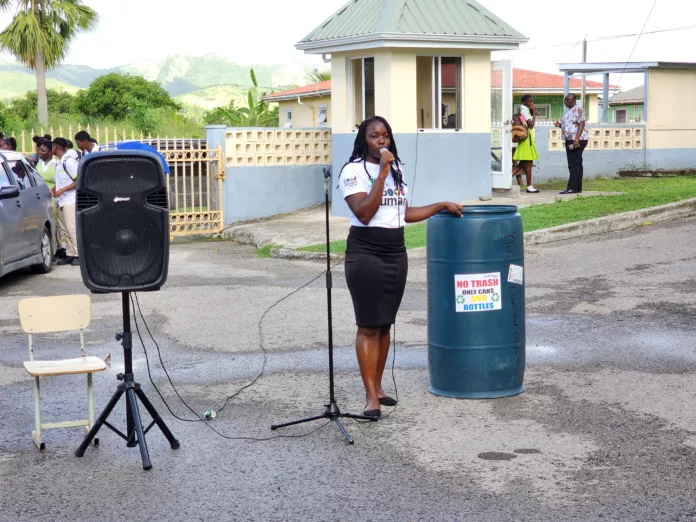

By S. Natalya Lawrence, National Coordinator, GEF Small Grants Programme – UNDP
I listen attentively each time, as though I had never heard it before; every time, my heart bursts with joy. I think, “environmental conservation education is reaching people after all”. I watch as the lively Joshuanette Francis, Founding-President of Good Humans 268 Inc, relates the tale of the organisation’s birth, and their path to recycling. “When I learnt of the damage caused to the earth by the utilisation of single-use plastic, I knew something had to be done!” she would say.
Good Humans 268 Inc was incorporated in 2023 and tackles issues of inclusivity, particularly focusing on persons with disabilities, and environmental stewardship. Among several of its endeavours, Good Humans has launched an ambitious, inclusive recycling project called “Student Community Service Project – promoting youth environmental stewardship and reducing plastic and metal pollution through a recycling programme”.
On January 23 2023, the organisation placed four bins at the All Saints Secondary School. Since then, they have expanded with 192 bins at 81 other schools. The bins are emptied weekly, and the contents sorted and distributed — the bottle caps to WISH foundation, the clear bottles to the Ministry of Health’s Plastic Free Island Initiative, and the coloured bottles and cans to the Antigua and Barbuda Waste Recycling Corporation.
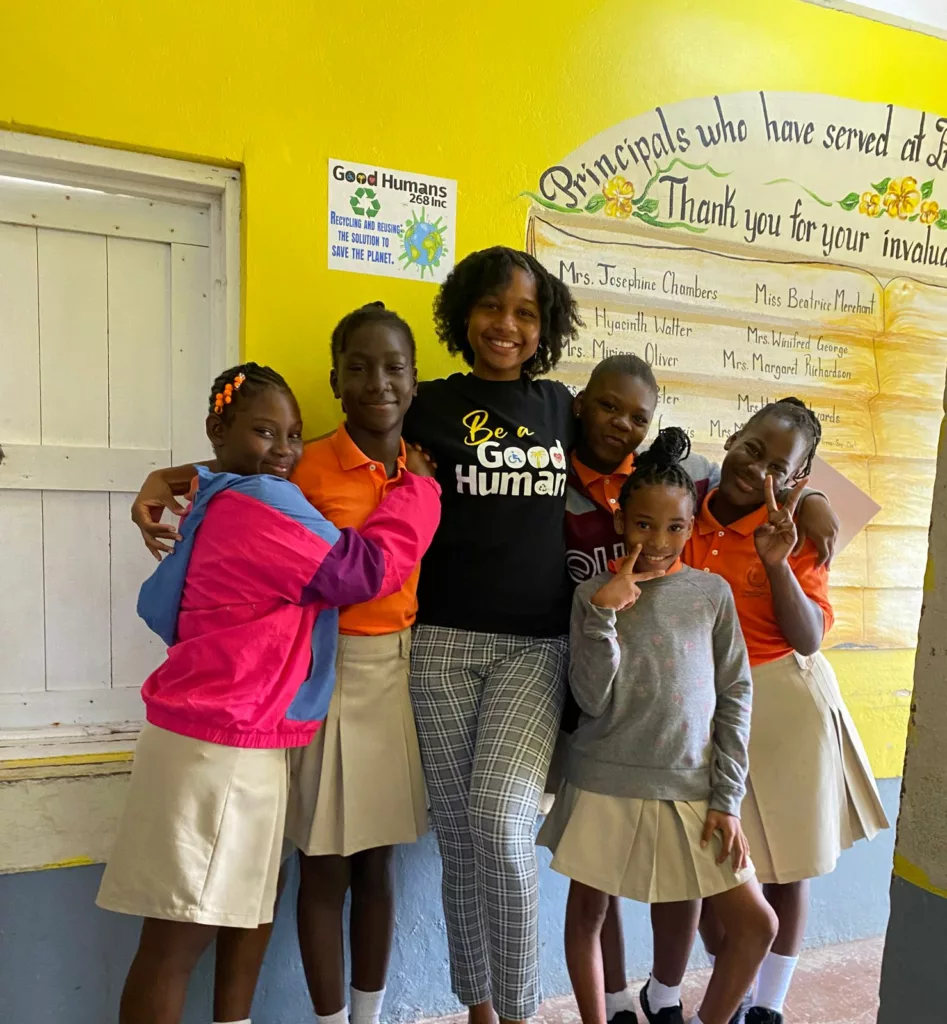
This GEF SGP-UNDP funded project has diverted 850,000 plastic bottles, aluminium cans, and glass bottles from the landfill and from our waterways in only 12 months. The numbers sound impressive, but the impact is greater when you witness the hills of bottles and cans and consider how long they persist in the environment.
An allure of island life is our connection to the sea. Saying this, I chuckle, living in Tabasco, Mexico, and my peers would ask, “Aren’t you afraid of being swallowed up by the sea?” And there I was, feeling down because I hadn’t caught a glimpse of it in months!
A colleague recently remarked, “The sea calms me, and that’s why my favourite colour is blue.” I was shocked as I repeatedly uttered identical sentiments. “Why are you shocked?” she asked, “We are from the Caribbean. The sea is our release.”
It is hard to imagine that scientists forecast that by 2050, our oceans will carry more plastics (by weight) than fish. We quickly turn our minds back to our favourite beach, with hypnotising, impossibly turquoise waters. “You mean I could be going for a swim at Ffryes Beach and be inadvertently ingesting plastic?!”
Plastic has undoubtedly made life easier by being very convenient. We use it for storage, drink from it, wear it, it’s in some toothpastes, facial scrubs, and the list goes on. Despite the convenience, it has also made life worse. We can’t seem to get away from the plastic crisis. Reflect on last year’s record-breaking temperatures; there must have been at least one time when you were caught unprepared and popped into a shop to grab a bottle of water. In less than five minutes, that bottle was discarded and forgotten, yet, it will persist in our environment for centuries, outliving you and thousands of your descendants for centuries to come. Soon, it may end up in a landfill, or in a drain. Suddenly, the storms come, and you are affected by floods because the drains are clogged with plastic and other debris.
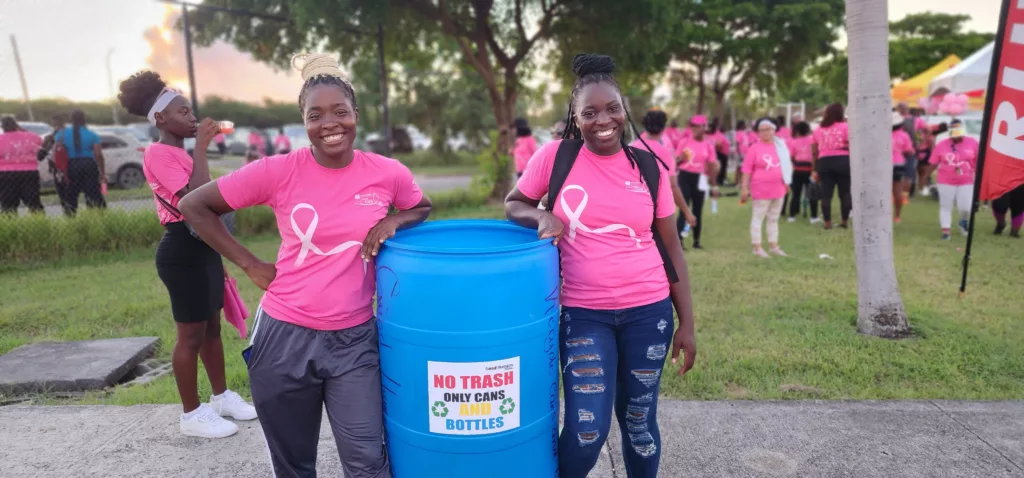
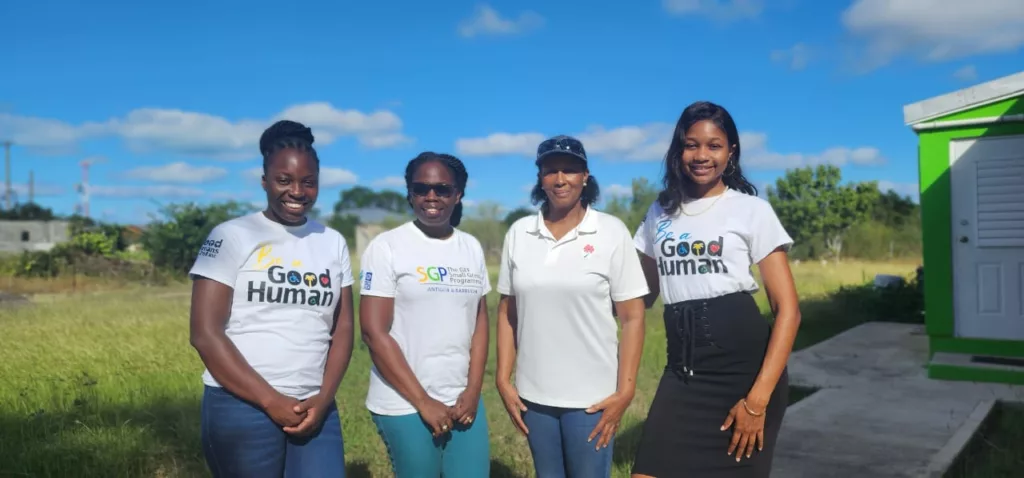
Plastic bottles and other plastic litter end up in the sea as large debris, microplastics, or even smaller nano plastics. There is a slew of other negative impacts that can be realised – it can maim or trap marine life, kill coral, cause suffocation, malnutrition, and behavioural changes when ingested by animals.
This is why Good Humans 268 Inc and similar organisations are bright lights that bring hope. In an ideal world, reliance on single-use plastics is drastically reduced, and they will be properly managed at the end of their life cycle. However, until then, CSOs such as Good Humans 268 Inc help to build a circular economy, reducing plastics in our natural environment. They understand that there must be a paradigm shift in behaviour, and have chosen to engage the youth to fight the scourge of plastic pollution.
As a young organisation, Good Humans 268 has learnt much, quickly. There were times when they had to re-strategise and re-work their approach to ensure maximum participation by all the schools. Additionally, the team is keen to learn more about waste management and has forged links with similar projects.
In a short time, the organisation has had a noticeable impact and can proudly boast of supporting at least four UN 2030 Sustainable Development Goals – 9: Industry Innovation and Infrastructure, 12: Responsible consumption and production, 14: Life Below Water, Goal 15: Life on Land. Their work further supports Antigua and Barbuda’s work to become a Plastic Waste-Free Island.
We will never live in a perfect world, but let’s ensure that while we are here, we do our best to make meaningful, simple choices, to safeguard our home. Be a good steward, Be a Good Human!
